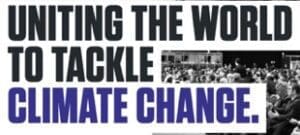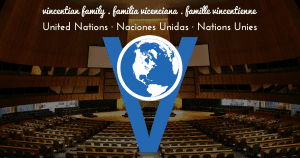1.5 degree Celsius kept alive, not within reach
COP26 climate summit was considered as the last hope for the world to take more ambitious and bold climate pledges to reduce global warming to 1.5 degree Celsius. Pope Francis and numerous faith leaders, people of faith climate activists appealed to the world leaders to have the courage and political will to deliver on their promises. For vulnerable people and nations experiencing frequent natural disasters and climate emergency, the summit was going to be a make or break event. They expected the developed, wealthier countries, who account for 80 per cent of global emissions would step up to take responsibility to reduce emissions and provide the finances they committed to in 2009 for developing countries for mitigation, adaptation and loss and damage.
The road from Paris Agreement in 2015 to COP26 in Glasgow was promising. For six years, civil society organizations, youth climate activists, scientists, indigenous peoples, faith-based organizations, human rights defenders, women’s groups, and other vulnerable communities kept up their relentless advocacy for transformative action plans to combat the climate crisis. During the climate summit, more than 100,000 people, led by climate youth activists from around the world, took to the streets of Glasgow on November 6 to demand bold, ambitious and actionable commitments from the Conference of Parties for net zero emissions by 2030, and not by 2050, to keep global warming below 1.5 degree Celsius. “Stop talking and start doing” was the message Vinisha Umashankar, an Earthshot finalist from India, to the climate negotiators.
 At the closing plenary, Alok Sharma, the President of COP26 said: “today we can say with credibility that we have kept 1.5 degrees within reach. But its pulse is weak. And it will only survive if we keep our promises and translate commitments into rapid action.” This COP missed the opportunity to change course for an ecosystem that protects human rights and dignity of all. Keeping 1.5 degree alive is not enough for the fragile planet and vulnerable communities who face the impacts of climate every day.
At the closing plenary, Alok Sharma, the President of COP26 said: “today we can say with credibility that we have kept 1.5 degrees within reach. But its pulse is weak. And it will only survive if we keep our promises and translate commitments into rapid action.” This COP missed the opportunity to change course for an ecosystem that protects human rights and dignity of all. Keeping 1.5 degree alive is not enough for the fragile planet and vulnerable communities who face the impacts of climate every day.
The outcome document, Glasgow Climate Pact did deliver on some of the promises, to accelerate action on climate this decade, but it was short on climate action. It failed to live up to the expectations of millions of people who are burdened by the slow onset of climate change – unbearable heat, floods, droughts, wildfires and coastal erosion from rising sea level, leading to loss of lives, livelihoods and land, pushing them into poverty, hunger and homelessness. There is disappointment, anger and a glimmer of hope. This is the first global roadmap to limit global warming to 1.5 degrees. Right now we are on track for 2.4 degrees Celsius of warming. It will be catastrophic for poor countries that contributed the least to create global warming
“Consign coal power to history,” became a rallying point during climate talks. But it was ditched by a last minute intervention by India and China and supported by South Africa, Bolivia and Iran weakened the language of the initial agreement – from “phase out coal” and phase out of “inefficient fossil fuel subsidies,” to “phase down coal.” Though weakened, it still sends out the message that coal is on its way out. An opening to exit from fossil fuels was closed for the time being, a great setback for all developing countries, especially for the Small Island Nations. The Glasgow accord has committed the 197 parties to the Paris Agreement to “accelerating efforts towards the phase down of unabated coal power and phase out of inefficient fossil fuel subsidies.” For the first time, fossil fuels had been included in COP agreements. Absent from the agreement is any mention of oil and gas. Oil and gas producing countries, along with more than 500 fossil fuel lobbyists managed to keep it out of the agreement. The world is not acting fast enough on fossil fuels.
UN Secretary-General, Antonio Guterres had this to say on the final agreement: it “reflects the interests, the conditions, the contradictions and the state of political will in the world today…unfortunately, the collective political will was not enough to overcome some deep contradictions.”
Main takeaways from the agreement:
- Adaptation: adapting to life in a changing climate; it involves adjusting to actual or expected future climate. The goal is to reduce vulnerability to the harmful impacts of climate change. Adaptation was a major discussion issue for developing countries in Glasgow. In the past focus had been on mitigation and most of the climate finance was allocated for mitigation efforts. This agreement has emphasized the urgency of scaling up action and support, including finance, capacity building and technology transfer to help developing countries to enhance their adaptive capacity to reduce their vulnerability to climate change.
- Mitigation: steps taken for reducing emissions and stabilizing the levels of heat-trapping greenhouse gases in the atmosphere. Parties have identified the gap in emissions and have collectively agreed to reduce the gap and strengthen their emissions reduction pledges to align with the Paris Agreement.
- Loss and Damage: For many years, developing countries and Small Island nations have pressed for the inclusion of Loss and Damage in climate agreements. The demand for the establishment of a new loss and damage fund during the summit, received resistance from the United States, European Union, Australia and other rich countries. It is a failure on their part to take responsibility for the harm they have caused over the past 200 years and meet the needs of vulnerable people. It is restorative justice. This COP has recognized that “climate change has already caused and will increasingly cause loss and damage as temperatures rise, impacts from climate and weather extremes, as well as slow onset events…” The pact has agreed to fund Santiago Network to help countries with technical expertise and to move communities away from threatened shorelines.
- Climate Finance: The climate pact acknowledged “with deep regret that the goal of developed country parties to mobilize $100 billion a year by 2020 in the context of meaningful mitigation actions and transparency on implementation has not yet been met…” The $100 billion goal will be met by 2023.
- Article 6 of Paris Agreement – countries came to an agreement on how international carbon market will function.
- Countries are asked to strengthen their 2030 emissions reduction targets by the end of 2022
- Rich countries need to “at least double their financial support to developing countries for adaptation.
- Deforestation – more than 130 countries pledged to halt and reverse deforestation and land degradation by 2030.
- Methane – more than 100 countries (representing 70 per cent of the world’s economy) signed the US and European Union led Global Methane Pledge and agreed to collectively slash methane emission by 30% by 2030.
- Coal and Fossil Fuels – 23 countries committed to phase out coal and help developing countries to transition away from coal. Twenty-five countries and five financial institutions committed to stop public financing for most fossil fuel projects abroad by the end of 2022. A few countries joined an alliance to halt new drilling for oil and gas.
- US-China Agreement – to boost cooperation on combating climate change over the next decade. These two countries account for 40 per cent of global emissions. It is only a Frame work, not a plan.
- India will aim to achieve net-zero emissions by 2070.
- Net-zero pledges by firms – more than 450 banks, insurers, pension funds, and other firms that collectively manage $130 trillion committed to use their funds to reach net-zero emissions by 2050.
Governments and businesses have failed to meet their climate obligations. Time is running out and it is left to the developing countries and climate activists to demand radical action in the coming year, before COP27, in Egypt to keep pressure on our governments and corporations to make sure their pledges to reduce emissions are kept and strengthened. Our advocacy begins right now to urge banks to divest from fossil fuels and invest in renewable energy; ask our governments to shift to regenerative agriculture for healthy soils for future generations; phase out polluting fertilizers, pesticides; improve water quality and conservation; promote biodiversity, food security and support for rural farmers; pressure supermarkets to phase out HFC refrigerants which produce greenhouse gases up to 9000 times more potent than carbon dioxide; etc. Your voice and climate action matters.
Teresa Kotturan SCN
NGO Representative at the UN
Sisters of Charity Federation








Thank you Teresa. I am late in reading this article and appreciate your presentation of the discernment of the final agreement. It is important to recognize the positive steps achieved. Those not aware of the UN language and process will be understandably discouraged but I am hopeful in the progress.